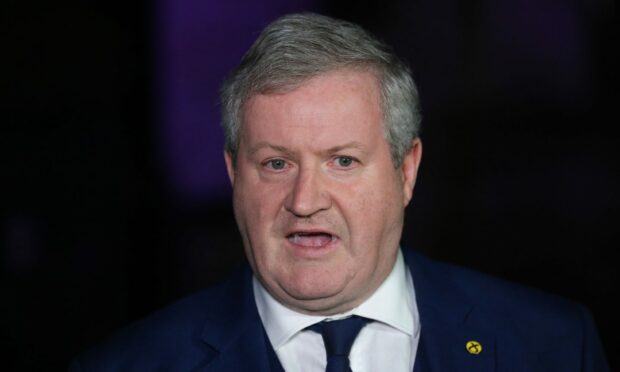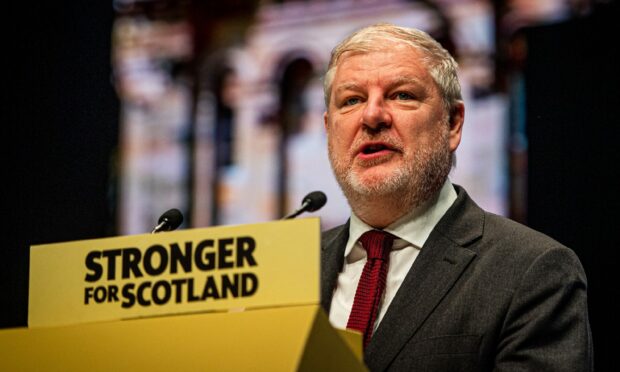SNP Westminster leader Stephen Flynn admits he was left in the dark about simmering financial problems in his party when he took over from Ian Blackford.
The Dundee-born MP took over from the previous leader of the Commons group in December.
Since then the party has been rocked by resignations, arrests and scrutiny over finances and leadership.
Mr Flynn shed more light and raised further questions about the state of the governing party in an interview on BBC Radio Scotland on Monday.
1 – Mr Flynn did not know auditors had quit
Despite leading his party in the House of Commons, Mr Flynn admitted he had no idea the SNP’s auditors, Johnston Carmichael, had resigned until February.
The company stepped back as long ago as last September when Mr Blackford still led the party at Westminster.
Mr Flynn said he was made aware on February 10 in an email which came from an SNP finance officer.
New First Minister Humza Yousaf previously admitted he had been given no indication of the development until after he won the leadership race.
2 – Ian Blackford did not tell all
Ex- Westminster boss Mr Blackford last week claimed he first became aware the SNP’s auditors had resigned “towards the tail end of last year”.
He insisted Mr Flynn was given a detailed financial briefing when he succeeded him and said all “relevant information” had been handed over.
But according to Mr Flynn, this did not include any information about Johnson Carmichael opting to quit working with the party.
The Aberdeen MP said: “There may well have been discussions between other people but certainly, in relation to myself, I became fully aware of the situation on February 10.”
3 – No guarantee auditors will be replaced by key deadline
Mr Blackford had “categorically” guaranteed the SNP’s Westminster group will have new auditors in place for May 31, when the party needs to submit its accounts.
But Mr Flynn said: “I’m not going to make any commitments in relation to that.”
Mr Flynn told the BBC he initially imagined getting a replacement would be a “straightforward process”, but said that was evidently not the case.
He added: “It’s obviously a situation which is in a state of flux. When you are not in control of something it’s best not to make firm commitments as to what could or couldn’t happen.”
That’s significant because failing to submit their accounts in just over a month’s time could have major consequences for the SNP.
4 – SNP could lose out on £1.2 million in funding
As an opposition party in Westminster, the SNP is entitled to Short money – public funding given to them each year to help with costs in parliament.
Mr Flynn said his party risks losing out on £1.2 million if it is unable to submit accounts at the end of May.
He said: “I’m very conscious of the fact we have staff members who this relates directly to as well, so I don’t want to be making any commitments I can’t keep to.
When pressed further, Mr Flynn said: “I wouldn’t want to incur any concern among staff that we aren’t going to be able to meet our deadlines.
“It’s probably quite a difficult time for them, so I’m not sure speculating is the best thing to do.”
5 – No knowledge of Angus Robertson’s secret top-up
It was revealed in recent days that senior Nationalist Angus Robertson received an extra £33,000 when he was Westminster leader.
Mr Robertson, a government minister, was given the additional cash in secret during his time in charge of the party’s House of Commons group.
Mr Flynn said he was unaware of this since he was not an MP at the time, but added he had not become privy to the arrangement since becoming elected.
The Aberdeen MP said he is not receiving any additional bonuses as leader himself but defended the party’s choice to give Mr Robertson more money.
He said: “I’ve not sought to ensure that I gain in that way, but I can understand why that could be the case. I don’t think it’s necessarily something which will raise many eyebrows.”




Conversation